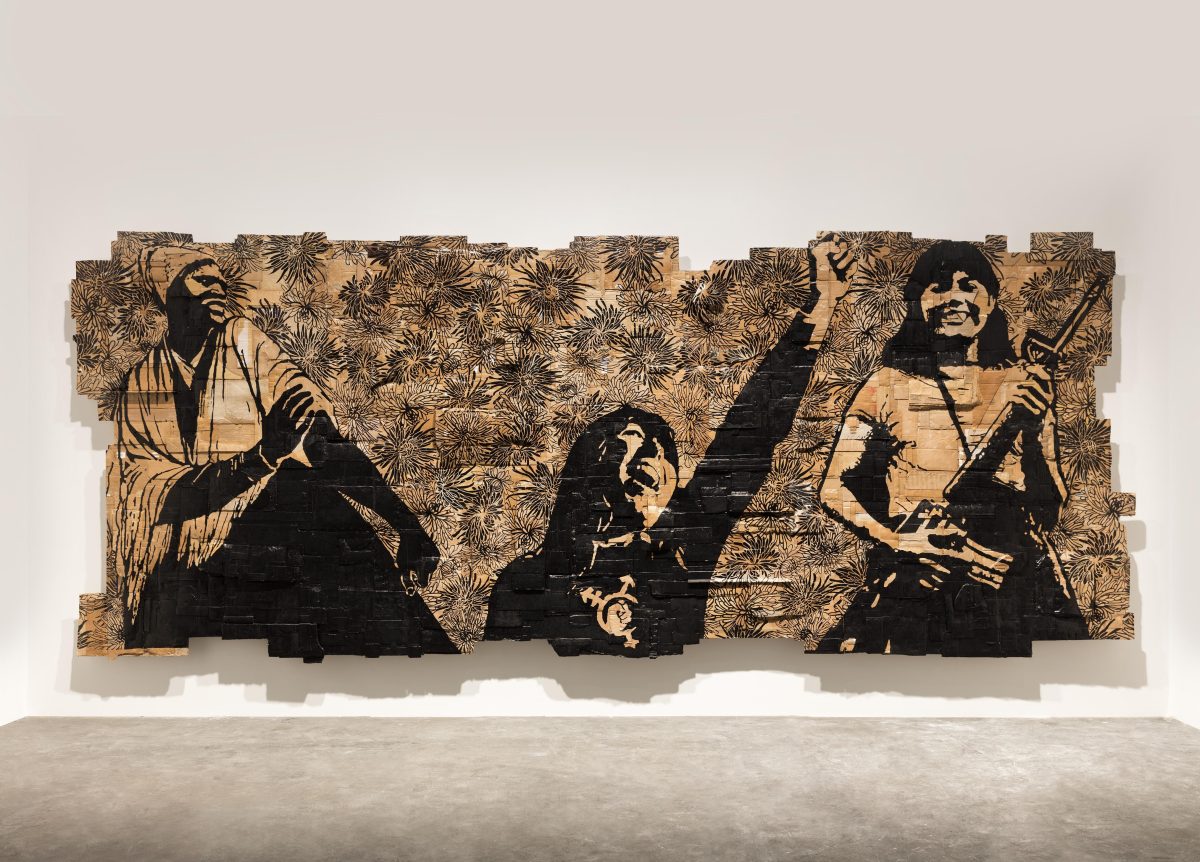andrea bowers: l’invention du quotidien
The need to cope with the ecological, economic and institutional crises that have reached a climax in recent years has generated a sense of urgency among many artists to propose alternatives to the often exhausting, extractive and unsustainable systems of living and working to which we are sometimes tempted to resign ourselves, and which mutilate our imaginations.
The artists featured in the exhibition find new ways of being in the world in the margins and interstices of our daily lives. They are interested in common objects and tools that they hijack and reappropriate, in fragile and unstable materials, in precarious situations, in changing places, in under-valued forms of work. They make tangible the multiple, unstable, entangled worlds that, in silence, people continue to make with each other.
Collecting, recycling, repurposing, transforming, collaborating, repairing, borrowing, pirating and investigating are all working methodologies that generate and nourish their works. Combining a desire for autonomy with lucidity, the guest artists cobble together combinatory “ways of doing” to reappropriate the goods, tools and spaces that impose themselves upon them. Beyond their great formal diversity, the question of transformation (of materials, tools and uses) is central to their practices.
Borrowing its title from the seminal book by that unclassifiable figure, Michel de Certeau, priest, philosopher and historian, the exhibition L’invention du quotidien is conceived, designed and produced in connection with its most direct environment, the city of Bordeaux. The Capc institution and the city’s urban and cultural fabric are seen as a field for experimentation, creating objects to be shared with the public, and collecting and reusing materials generated by the urban and cultural fabric.
The exhibition gives voice to these artists who seek singular, inventive, secret and sovereign joys. To make this exhibition what the American essayist bell hooks recently called “a space of encouragement”.

